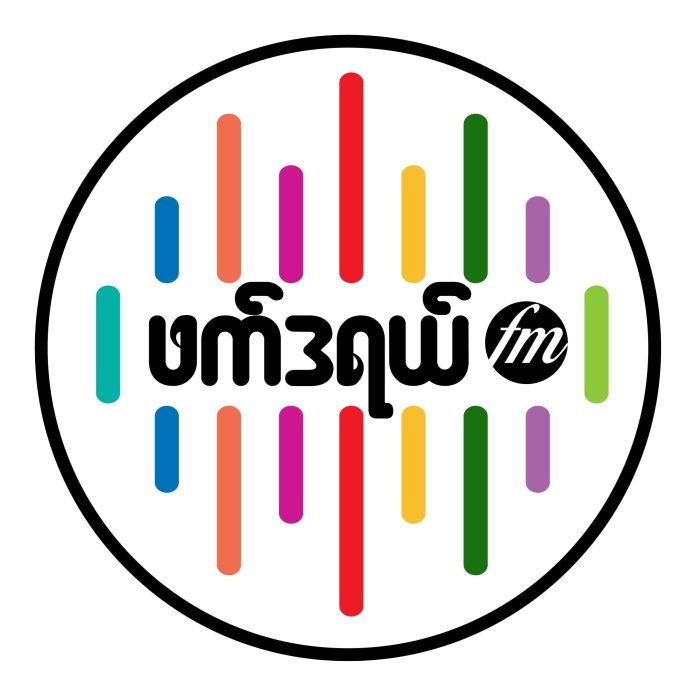Guest contributors
Pyartho & Waso
It took us three days to arrive in Karenni State from Chiang Mai, Thailand. In our group, there were other members of Federal FM, a pirate-turned-community radio station born in Yangon and Mandalay following the 2021 military coup and now broadcasting in areas under the control of the Karenni resistance.
We were the only two from Federal FM’s Chiang Mai office, while the others with us were from our office based inside Karenni State. We travelled along bumpy roads and crossed rivers along the way.
By the time we arrived in Demoso Township on Feb. 5, it was 9pm and eerily quiet. We had to drive fast to avoid the military’s tracking aircraft. As soon as we arrived, there was news about airstrikes at two schools in Daw See Ee and Loi Nan Pha villages.
Five people, including four children, were killed in the airstrikes. We immediately went to those schools to interview the teachers and parents. They were emotional during the interviews.
What surprised us during the interviews with parents was that they felt lucky for not losing all their kids on that fateful day. Later we found out that those kids had time to run and hide in a bomb shelter, but they had spent too much time trying to rescue the younger kids, so when they arrived near the bomb shelter, it was too late and the airstrikes took their heroic lives.
Inside the classrooms, we saw the kids’ lunch on their desks and their sandals outside of the classrooms, near the bomb shelter. We are working on a radio program about the military’s airstrikes and aerial bombings. This was our first experience witnessing the devastation of airstrikes.
During our first week in Karenni State, we met David Eubank, the founder of the Free Burma Rangers (FBR). We are also creating programs to raise awareness about landmines, so we had a chance to discuss the military’s arsenal of weapons with an expert (Eubank is a former U.S. Army Special Forces and Ranger officer).
During our one month stay in Karenni State, we travelled from Demoso to Bawlake and Hpasawng, and some villages along the Shan-Karenni border demarcation. We also had a chance to visit Internally Displaced Persons (IDP) camps there. There are over 300,000 IDPs in Karenni and southern Shan states, according to the Karenni Interim Executive Council (IEC).
It has been three years since the 2021 military coup. The number of IDPs has increased along with the Karenni resistance forces’ territorial control to almost 90 percent of the state, according to the IEC. Most IDPs work on farms to keep themselves productive and to help solve the financial problems many face from having fled their homes due to the fighting with the military.
We interviewed a farmer and produced a radio story for Federal FM. We met the founders of the Poppy to Coffee project, which advocates on behalf of poppy farmers to switch to growing cash crops like coffee, avocado, and Japanese oak trees called Quercus acuta.
In our point of view, the Poppy to Coffee project is very local, and it is also facing financial difficulties due to the rapid economic decline in Myanmar since the coup. As a result, poppy farms and the market to sell it grows fast, as Myanmar has become the world’s number one opium producer.
Demoso Township residents are now living a “new normal” creating their own economic opportunities through businesses. Many informal schools and colleges are run by enthusiastic and intelligent young people. We also noticed that IDPs continue to take care of their pets even though they are facing financial constraints.
Pets, like the people, from Karenni State are extremely brave and strong since they are used to airstrikes and aerial attacks from the military. They know to follow people into bomb shelters. Although Karenni has issues with water scarcity, it is mountainous with beautiful rivers, clear skies and cool temperatures.
We’ve seen colourful trees and plants before but never different coloured rocks like white, grey, indigo blue, and black. It truly is a breathtaking place, even though we’ve been living in northern Thailand with similar geography. However, we could sense the true beauty of the Salween River.
Why can’t tourists come to see the natural beauty of Karenni State? Why must we travel quickly and dodge the bombs and bullets without enjoying it fully? Those are the questions we were left with upon our return to Thailand.
—
Pyartho and Waso are pseudonyms used by two teachers and broadcasters working at Federal FM, a pirate-turned-community radio station broadcasting online and in Karenni State.
DVB publishes a diversity of opinions that does not reflect DVB editorial policy. We’d like to hear what you think about this or any of our stories: [email protected]



